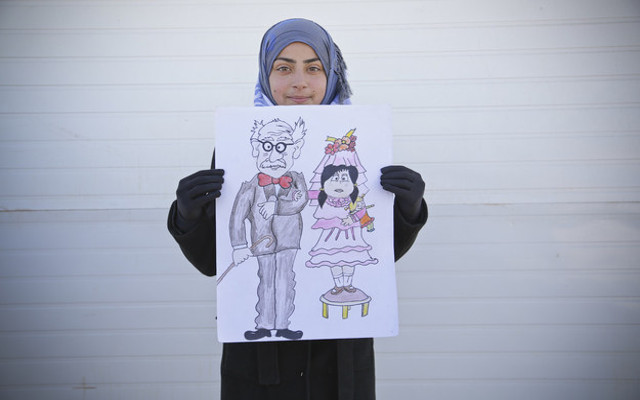Like most of the other members of the Gulf Cooperation Council, Saudi Arabia is a destination country for human trafficking. Migrant and domestic workers travel from Southeast Asia, Africa, and East Asia in order to make more money to send home to their families. Once in Saudi Arabia, many laborers, especially female domestic workers, are physically and sexually abused by their employers. This abuse has caused multiple countries to place bans forbidding their citizens from working in Saudi Arabia, such as Indonesia and Uganda.
While Saudi Arabia is a locus for human trafficking, Saudi nationals also contribute to human trafficking operations and sex tourism in other parts of the Middle East. This is especially the case in Lebanon and Jordan with regard to Syrian refugee women and girls. Conditions in the refugee camps and threats of sexual predation there leave few choices for many Syrian families except to sell their young daughters into marriage with foreign men.
Many older, wealthy Saudi men come to refugee areas looking for young Syrian girls with whom to engage in mut’ah or temporary marriage. These marriages are not legal in or recognized by Saudi Arabia, and can be easily dissolved. Families, unable to feed their children and willing to do anything, can be forced to give their daughters to foreign strangers in exchange for a dowry, ranging from anywhere between a hundred to a few thousand dollars; men pay more for younger girls, around 13 or 14 years old, and virgins. These men either directly pay the very low bride prices to the girls’ fathers or they go through an intermediary marriage broker.
These temporary marriages, usually lasting a few days or weeks, are exploitative to young girls. They are taken out of the refugee camps, leaving them isolated from their families and frequently unable to contact them. The girls are also forced to consummate their marriages. When the Saudi men divorce the girls, they leave behind a wake of teenage divorcees. Their divorces leave the young girls even more vulnerable to further trafficking and more temporary marriages; many Syrian refugee girls have been married and divorced multiple times by the age of 18.
The Saudi Arabian government has taken small steps to deal with its migrant worker issues through agreements with source countries. However, according to the U.S. Department of State’s 2015 Trafficking in Persons Report, Saudi Arabia has not made “efforts to address child sex tourism by Saudi nationals abroad through any law enforcement efforts.” The Saudi Arabian government needs to create and enforce legislation regarding Saudi Arabian nationals’ contributions to human trafficking and sex tourism in other countries. Their government needs to hold Saudi men engaging in temporary marriages with Syrian refugees accountable for taking part in sex trafficking abroad.
Brittany Hamzy is an Advocacy Fellow at ADHRB





